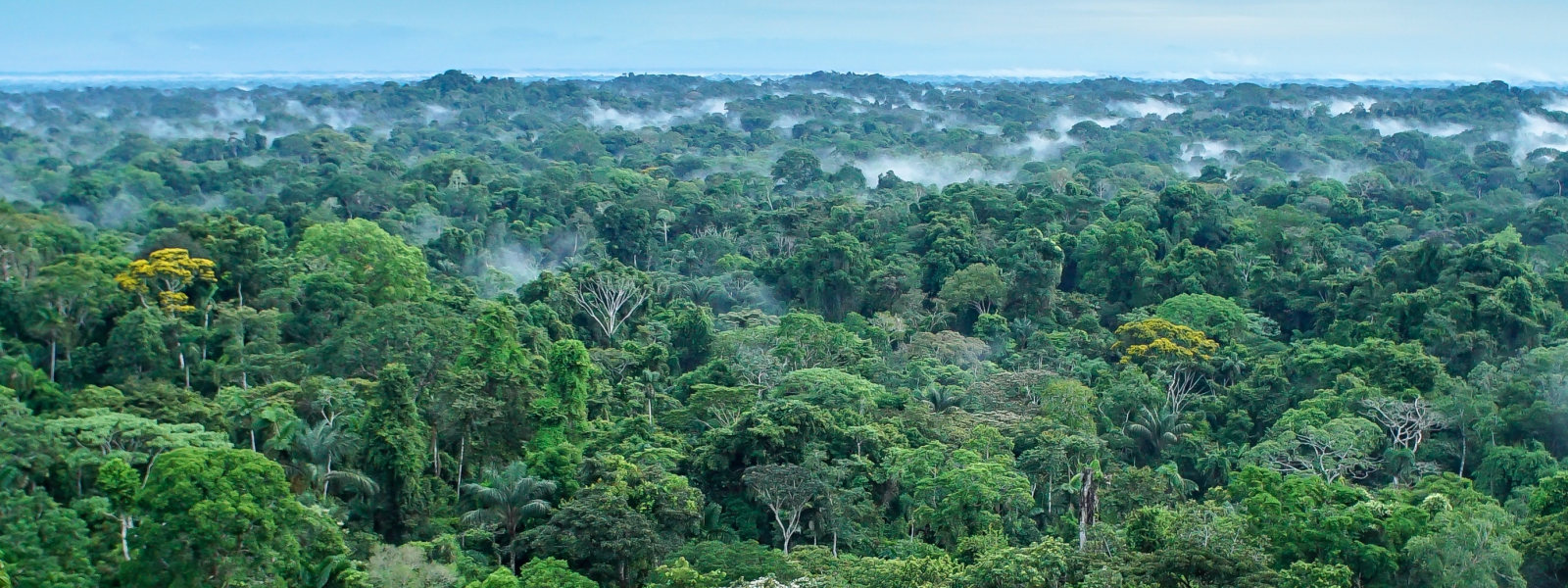
What the people of Ecuador decide in an August 20 referendum has the potential to not only slow oil exploitation in the Amazon, but also to generate a transformative impact at the national and international levels, recognizing the value of the key ecosystem for stabilizing the global climate and the need to transition to renewable and sustainable energy production.
On August 20, in a popular consultation, the Ecuadorian people will have the opportunity to decide on a definitive halt to oil exploitation in a part of Yasuní National Park, one of the most biodiverse areas of the planet, located in the Amazon rainforest. The consultation seeks to stop oil extraction in the ITT block (Ishpingo, Tiputini, Tambococha), one of three in production within the park.
Yasuní National Park is a UNESCO Biosphere Reserve. Multiple scientific studies have demonstrated its value in terms of biodiversity and its significance as the home to the Waorani people, and to the Tagaeri and Taromenane indigenous groups in voluntary isolation.
The Amazon is an interconnected region shared by eight countries—Bolivia, Brazil, Colombia, Ecuador, Guyana, Peru, Suriname and Venezuela—and by French Guiana, a French overseas department, and what happens in one part of it affects the rest. Moreover, as a megadiverse region that serves as a global climate stabilizer, the importance of the Amazon rainforest is global.
The eyes of the world will be watching to see if Ecuador chooses to protect its Amazonian territory, which would have a transformative impact not only in the country, but also across Latin America and the world. Protecting Yasuní would send a clear message that recognizes the ecological and social value of the Amazon to materialize the necessary energy transition and the protection of human rights.
Javier Dávalos, AIDA's Climate Program Coordinator and Ecuadorian attorney, reflects:
"After years of relentless struggle by social organizations and indigenous movements, Ecuador has the chance to make important progress in protecting an ecosystem that is key to adapting to and mitigating the global climate crisis, as well as to the survival of traditional and indigenous peoples, including those in voluntary isolation.
To protect the climate for this and future generations, fossil fuel production must begin to decline immediately, and renewable energy production must be accelerated as part of a just transition.
Ecuador can be a pioneer, leaving behind the environmental and social sacrifice zones promoted by the fossil fuel industry and showing the world how civil society can promote the just energy transition that the world needs.
It can be an example of how to build energy alternatives based on guaranteeing human rights and the rights of nature, and how to effectively combat the triple crisis the world is facing: climate change, biodiversity loss and pollution."
The initiative to put a definitive stop to oil exploitation in part of the Amazon is in line with the recommendations of the Intergovernmental Panel on Climate Change and the International Energy Agency that one-third to two-thirds of oil reserves be left in the ground in order to keep the increase in the average temperature of the planet below 2°C, compared to pre-industrial levels, and thus avoid catastrophic effects.
The popular consultation in Ecuador takes place a few weeks after the UN Secretary General, Antonio Guterres, declared the beginning of the era of "climate boiling", pointing out the need for concrete changes to face the emergency and crisis caused by global warming.
In addition, this consultation comes shortly after the conclusion of the Amazon Summit in Brazil, where the eight Amazonian countries discussed how to chart a sustainable path forward for the Amazon rainforest.
"It is time to phase out fossil fuels to protect the Amazon," said Gustavo Petro, President of Colombia, who recently urged Amazonian countries and their partners in the Global North to commit to phasing out fossil fuel exploitation in order to protect the right to a just transition and accelerate the transition to a post-oil economy.
Víctor Quintanilla (Mexico), AIDA, [email protected], +521 5570522107
